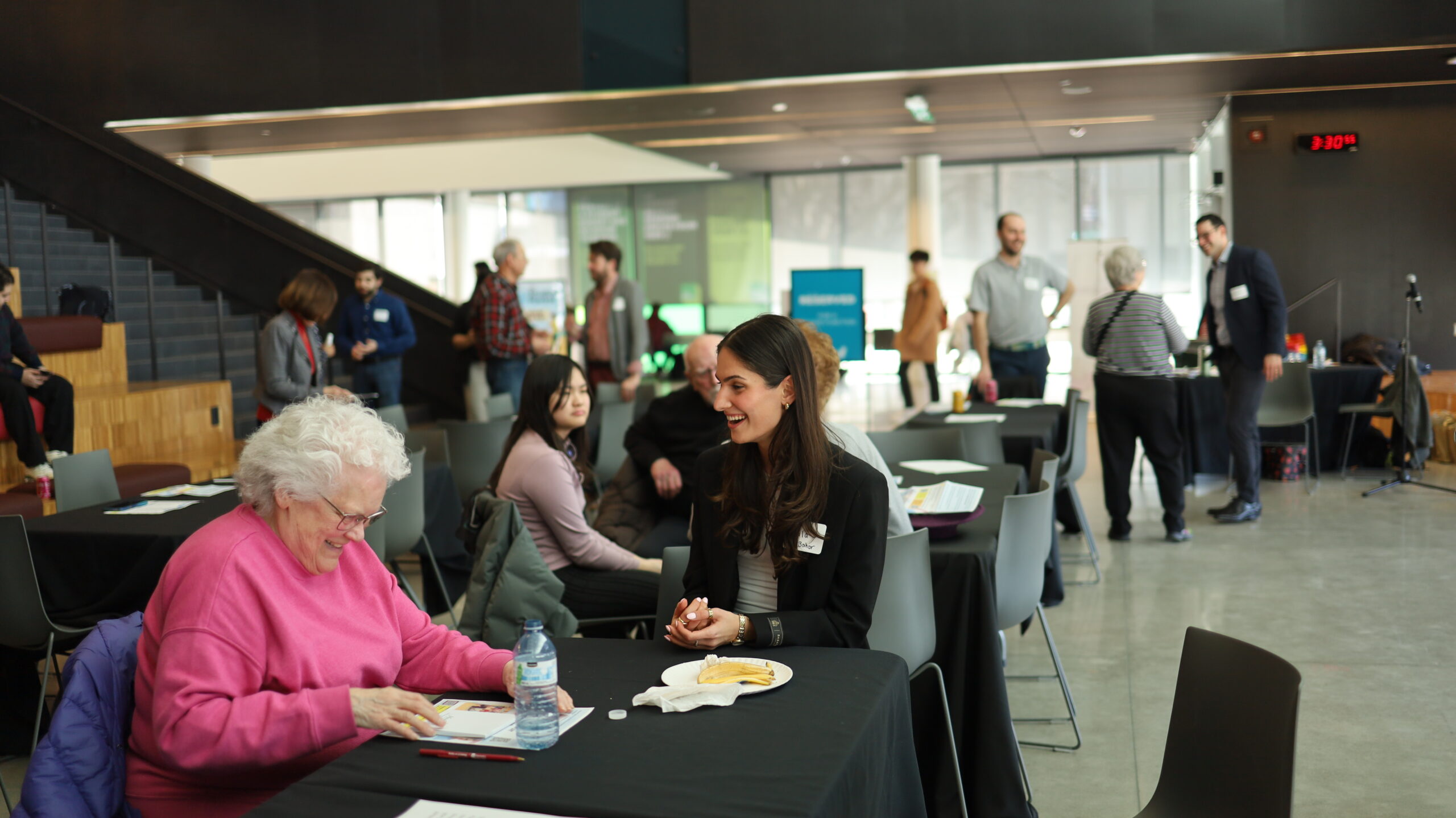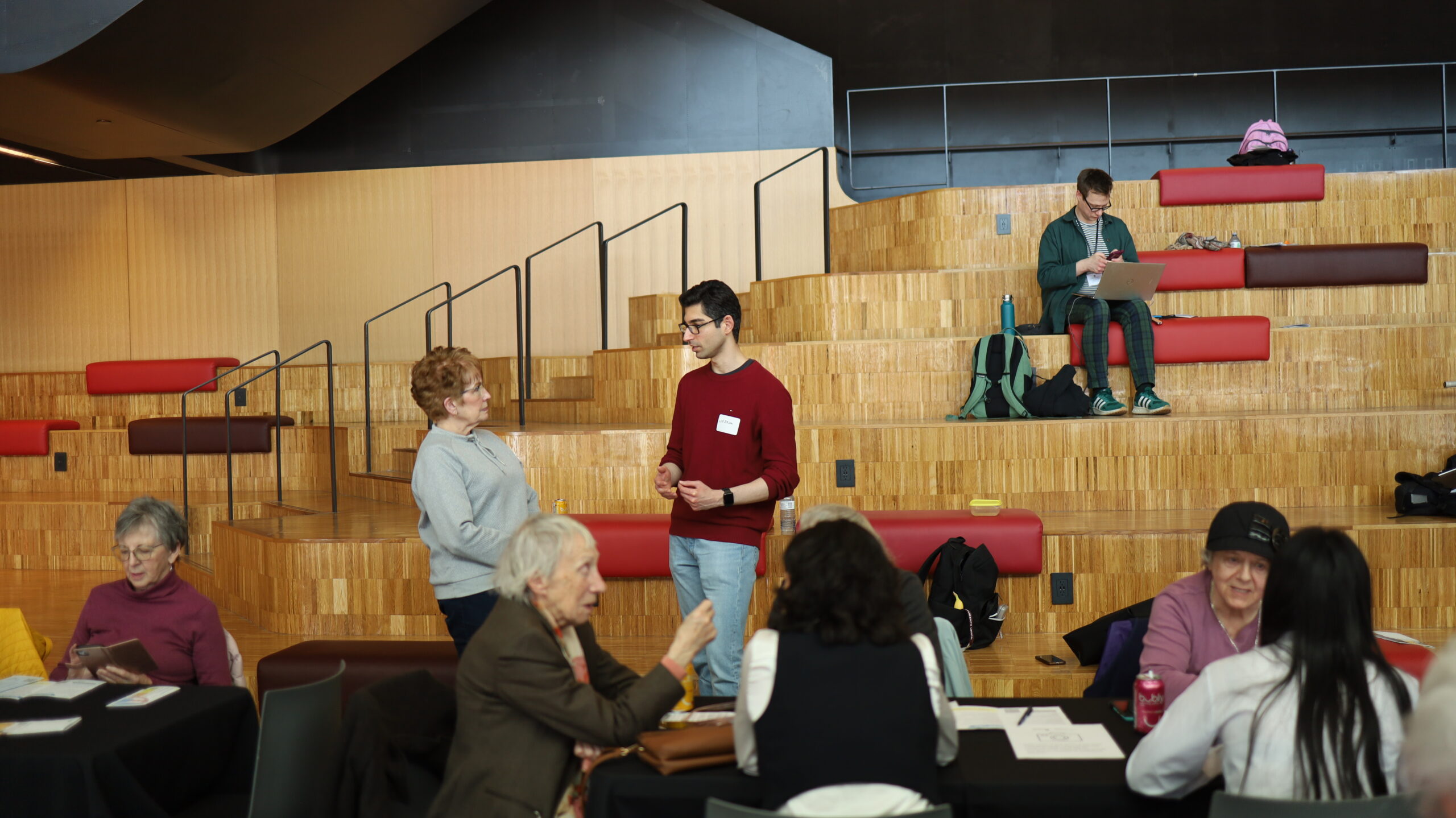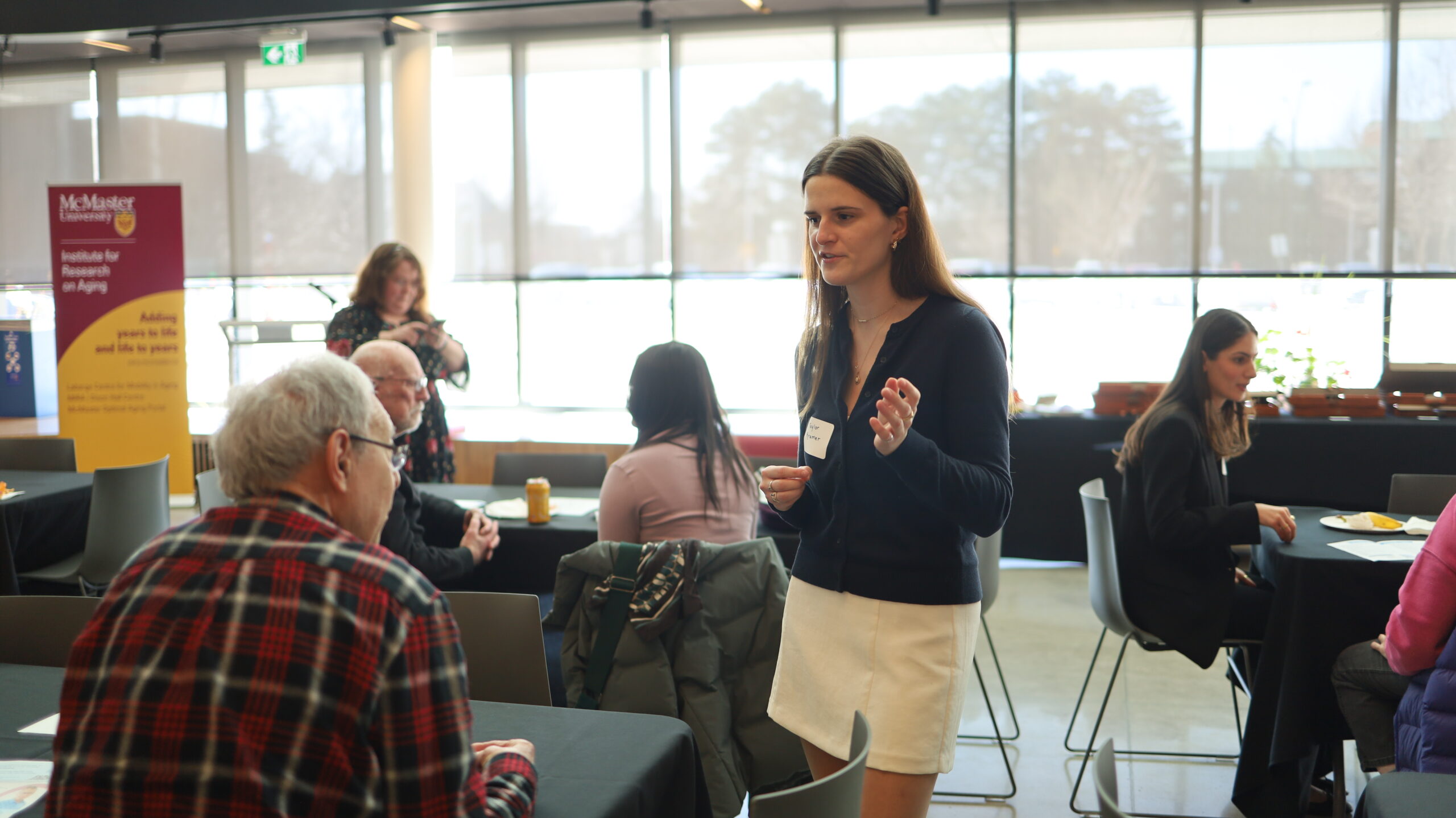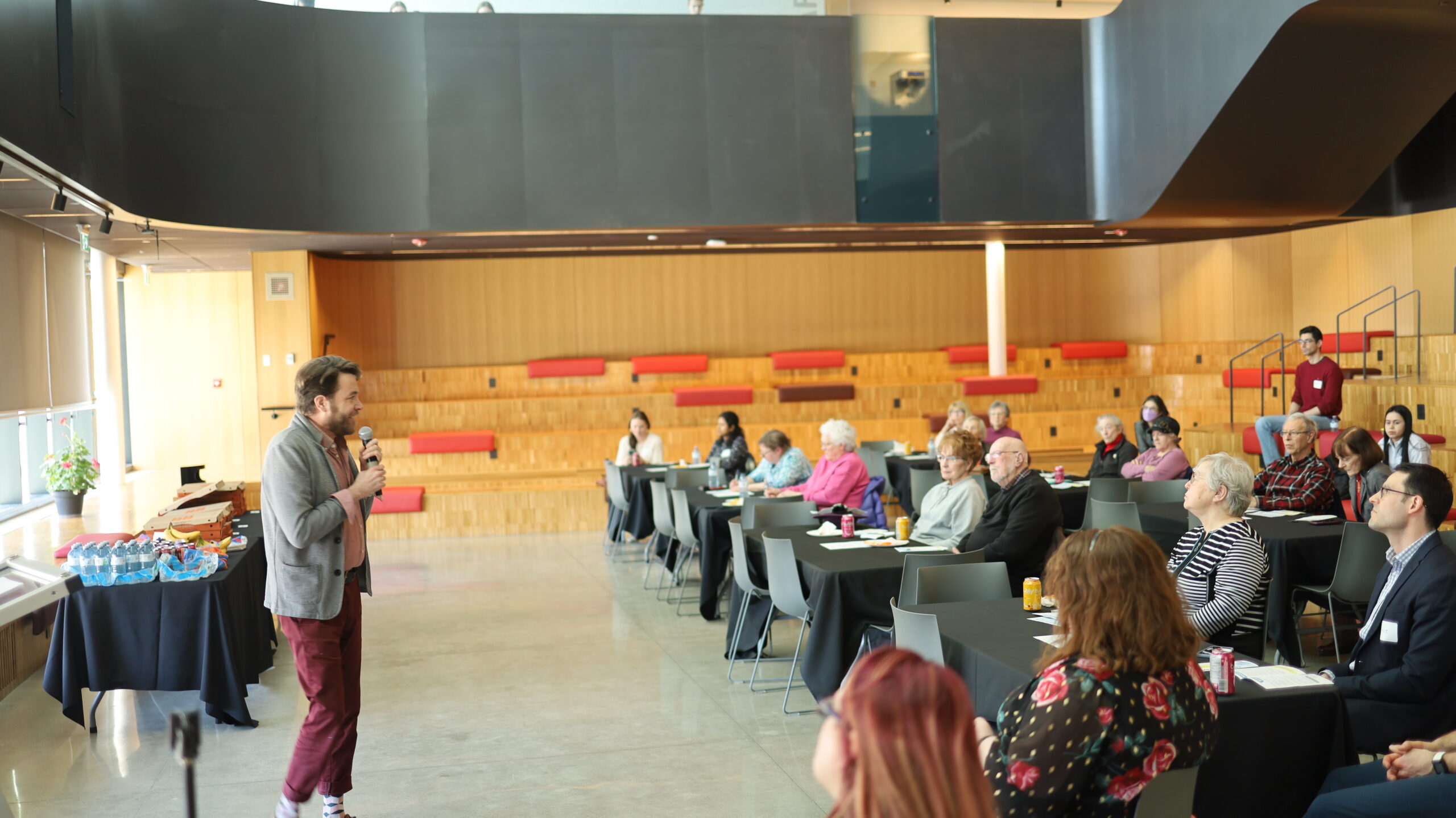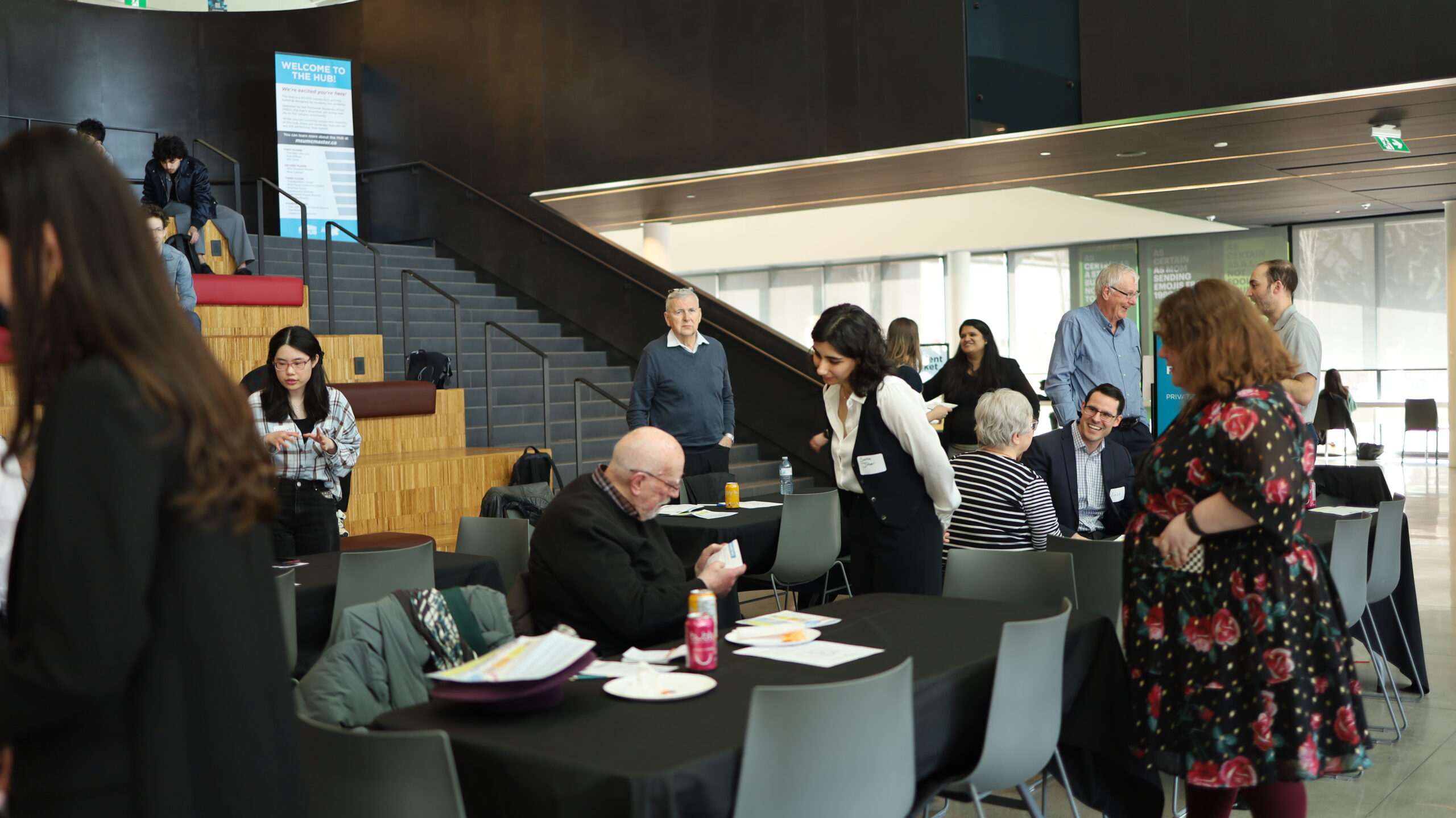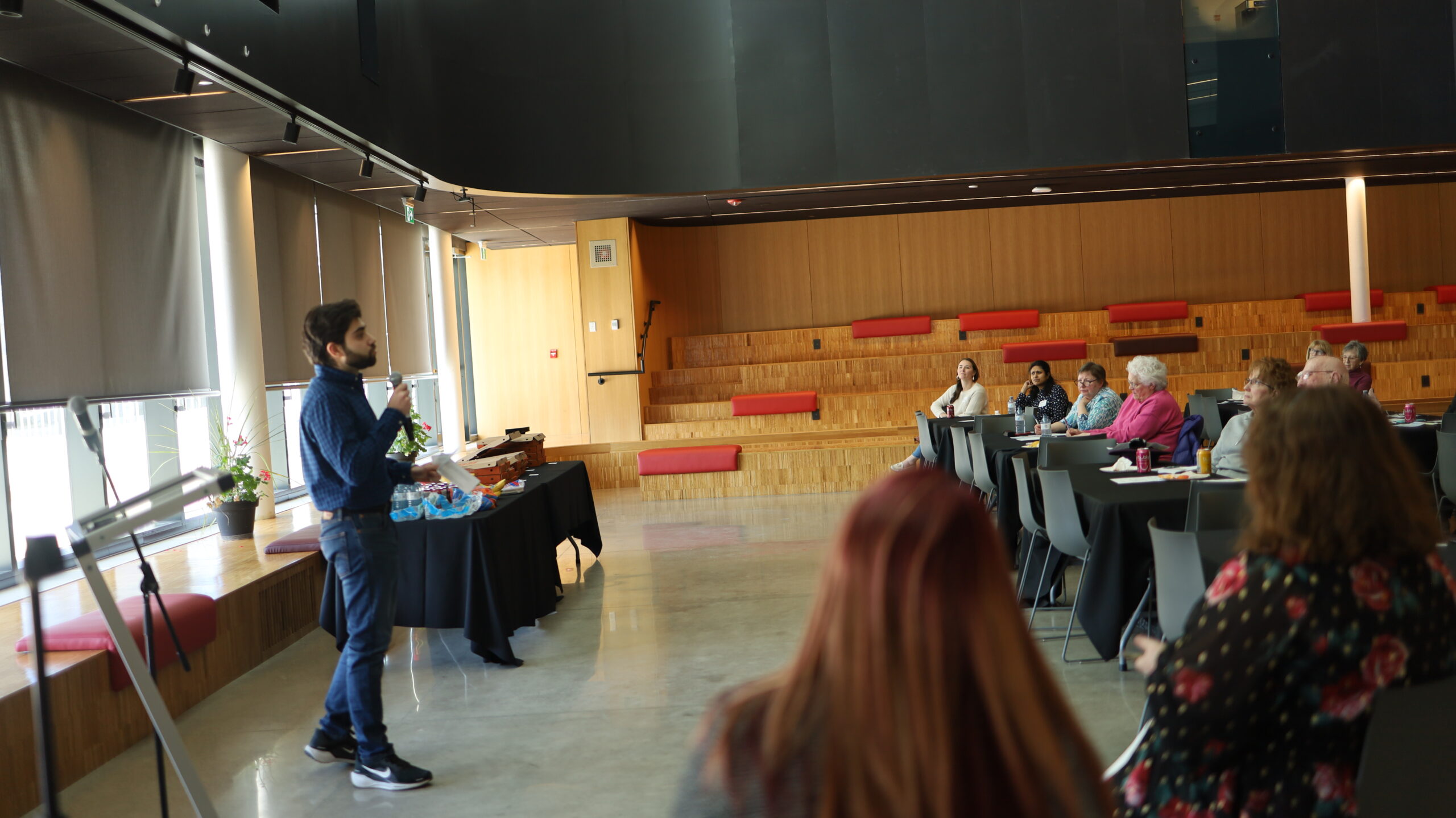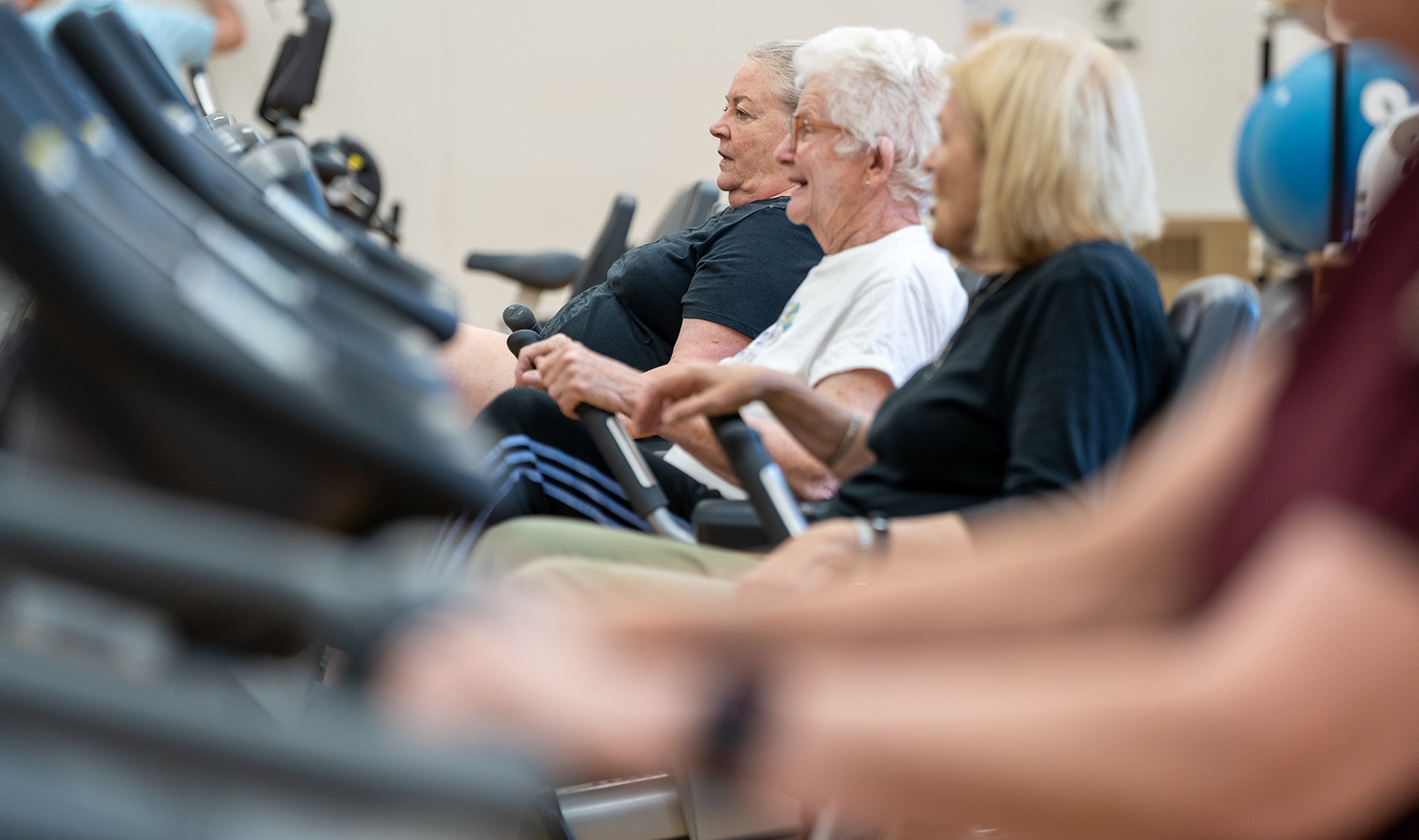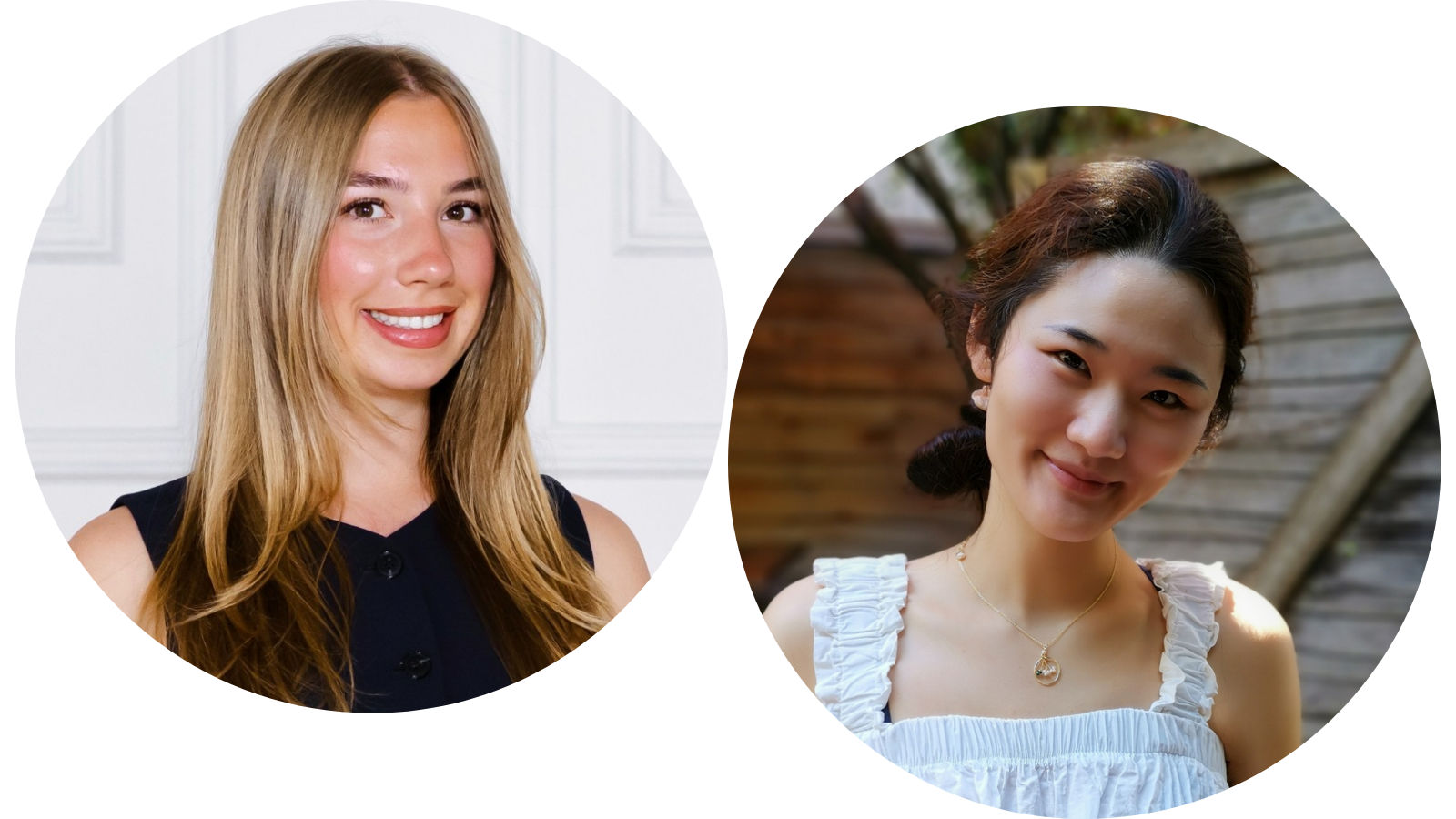Last Tuesday, the McMaster Institute for Research on Aging’s Trainee Network hosted its annual Pitch Your Project event, welcoming 15 trainees from across all levels of study—undergraduate, masters, PhD, and postdoctoral fellows— and faculties to present their aging research in a “three-minute thesis” style. This format challenges participants to communicate complex research in an engaging and accessible way to a crowd of fellow trainees, researchers, friends, family and older adults at McMaster Students Union’s The Hub.
An annual showcase of trainee research in actionthe event showcased the diverse and interdisciplinary nature of aging research happening at McMaster University, with projects spanning topics in AI, cognition, mobility and more. Pitch Your Project provides trainees with a valuable opportunity to practice their science communication skills, receive feedback, and engage with others in the aging research community through networking over shared discussion and refreshments.
MIRA would like to congratulate Almila Bahar (left), master’s student in the Faculty of Health Sciences supervised by Dr. Bhagwati Gupta for winning best presentation: “The mystery of dying brain cells,” and Alexandra Mayhew (right), postdoctoral fellow in the Faculty of Health Sciences supervised by Dr. Parminder Raina for best slide deck: “The Fantastic Five: Heroes of strength and mobility”.
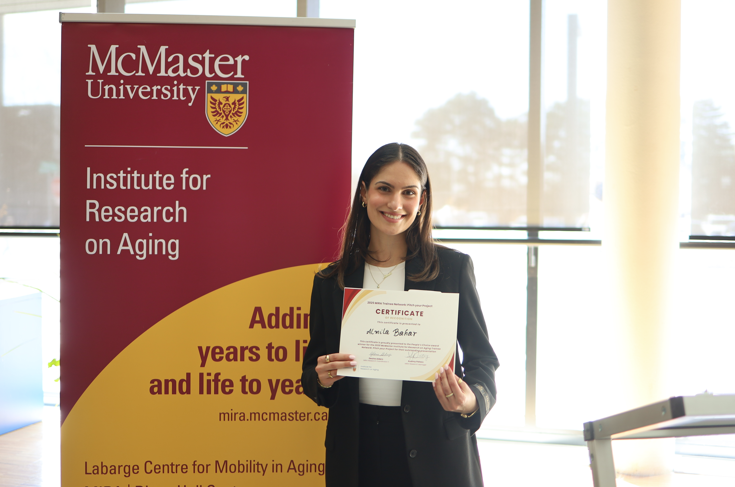
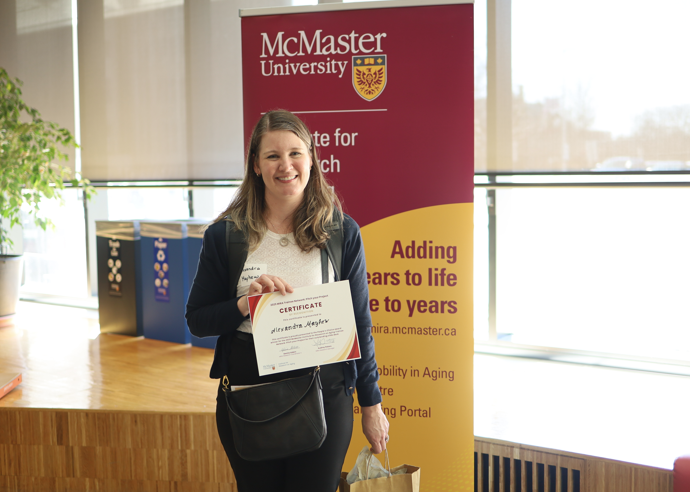
A huge thank you to our presenters (see full list of presenters below), judges, and attendees for making this event a success! If you enjoyed Pitch Your Project, be sure to visit the MIRA events webpage for more events like it.
Presenters:
Alexandra Mayhew, Health Sciences, Department of HEI
Supervisor: Dr. Parminder Raina
The Fantastic Five: Heroes of strength and mobility
Almila Bahar, Health Sciences, Biology (Neuroscience)
Supervisor: Dr. Bhagwati Gupta
The mystery of dying brain cells
Benjamin Cornish, Faculty of Health Sciences, School of Rehabilitation Sciences
Supervisor: Dr. Marla Beauchamp
Improving the description of mobility in daily life using a combination of wearable sensor types and wear locations in MacM3
Cameron Murray, Faculty of Science, School of Interdisciplinary Science
Supervisor: Dr. Alex Hall
Towards a hyperlocal future of aging
Elizabeth Zhou, Faculty of Health Sciences, Department of HEI
Supervisor: Dr. Alexandra Papaioannou
Exploring the intersectionality of sex, ethnoraciality, and socioeconomic status in long-term care admissions: an Ontario ICES population-based study
Hesam Hafezalseheh, Faculty of Health Sciences, Medical Sciences
Supervisors: Dr. Dawn Bowdish and Dr. Chris Verschoor
The brain’s time machine: unlocking the secrets of cognitive longevity
Jasdeep Dhillon, Faculty of Health Sciences
Supervisor: Dr. Cynthia Lokker
The patient port-all: improving the accessibility and usability of a patient portal for older adults
Meenakshi Goel, Faculty of Health Sciences, Department of Obstetrics and Gynecology
Supervisor: Dr. Alison Shea
Breaking the age barrier: exploring benefits of hormones beyond 60
Sama Jaberi, Faculty of Health Sciences, Department of Psychiatry and Behavioural Neuroscience
Supervisor: Dr. Margaret Fahnestock
A feast for neurons: tracking NGF’s journey in the brain
Seyedaydin Jalali, Faculty of Engineering
Supervisor: Dr. Ravi Selvaganapathy
Can exercise protect the brain? A 3D model to uncover the truth
Taylor Kramer, Faculty of Engineering, School of Biomedical Engineering
Supervisor: Dr. Cheryl Quenneville
Keeping grandma’s bones strong: how AI predicts fractures
Tina Liu, Faculty of Science, Department of Psychology, Neuroscience & Behaviour
AgeUnity: real people, real connections
Veronica Santos Souza, Faculty of Health Sciences, School of Rehabilitation Science
Supervisor: Dr. Luciana Macedo
Pain education in older adults: two sides of the coin
Vincenzo Di Bacco, Faculty of Science, Department of Kinesiology
Supervisor: Dr. Dylan Kobsar
Mobility estimated in clinical and free-living settings to support knee osteoarthritis

